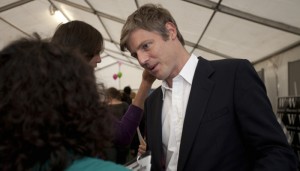 I have a confession to make. I find the whole snobbish going to university thing stupid. If you want to actually study something or be a doctor, then obviously go and reach your potential, but one of the things I find most stupid about social pressure is that everyone should go to university. At least if they want to be middle class.
I have a confession to make. I find the whole snobbish going to university thing stupid. If you want to actually study something or be a doctor, then obviously go and reach your potential, but one of the things I find most stupid about social pressure is that everyone should go to university. At least if they want to be middle class.
Tuition fees are now appallingly expensive, and the most annoying thing I found about the recent BBC class calculator is that they still put going to university and owning a home as an indicator of class. Even though people buying homes they could not afford was one of the factors in the recession, and a recent study said that most students would never be able to pay of the debts they had incurred.
I recently saw an interesting meme on Facebook. It said, “Modern education: creating people who are smart enough to accurately repeat what they are told and follow orders.”
You don’t have to agree with me. I know it is a controversial thing to think. However, have a look at just a few of the famous people who did not go to university.
Apple founder Steve Jobs dropped out of Reed College.
TV host and comedian Ellen DeGeneres dropped out of the University of New Orleans after one semester.
The creator of Tumblr David Karp never even graduated from high school.
Walt Disney left school at 16 to join the Army. He couldn’t get in because of his age so he joined the Red Cross and left for Europe.
Bill Gates dropped out of Harvard but later got an honorary degree.
Paul Thomas Anderson dropped out of NYU film school.
Zac Goldsmith MP for Richmond Park and North Kingston did not go to university, instead deciding to travel the world. He told the Financial Times: “I think university is hugely overrated for most people,” he says, insisting that a wide range of good apprenticeships is more useful than three years of light work and heavy drinking. “I would not encourage my children to go to university.”
Mark Zuckerberg dropped out of Harvard to work full time on Facebook.
Yoko Ono dropped out of Sarah Lawrence College
Woody Allen was thrown out of New York University after one semester and later dropped out of the City College of New York.
James Cameron studied physics at Fullerton College. He dropped out to become a truck driver.
Thomas Edison left school to work on the railroad at the age of 12.
F. Scott Fitzgerald dropped out of Princeton.
Coco Chanel dropped out of school to become a cabaret singer when she was 18.
Whole Foods founder John Mackey dropped out of the University of Texas.
Pablo Picasso dropped out of the Royal Academy of Fine Arts.
The founder of WordPress Matt Mullenweg dropped out of the University of Houston in 2004.
What do you think? Is going to university important?

